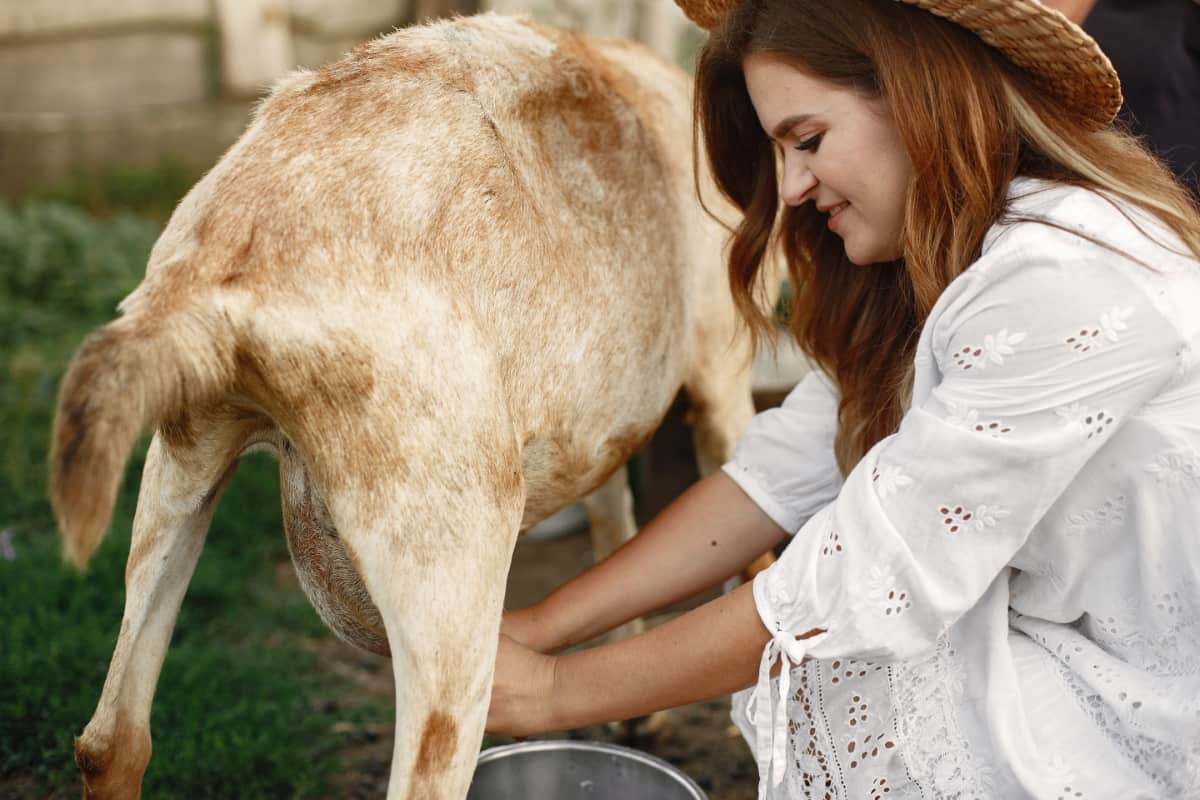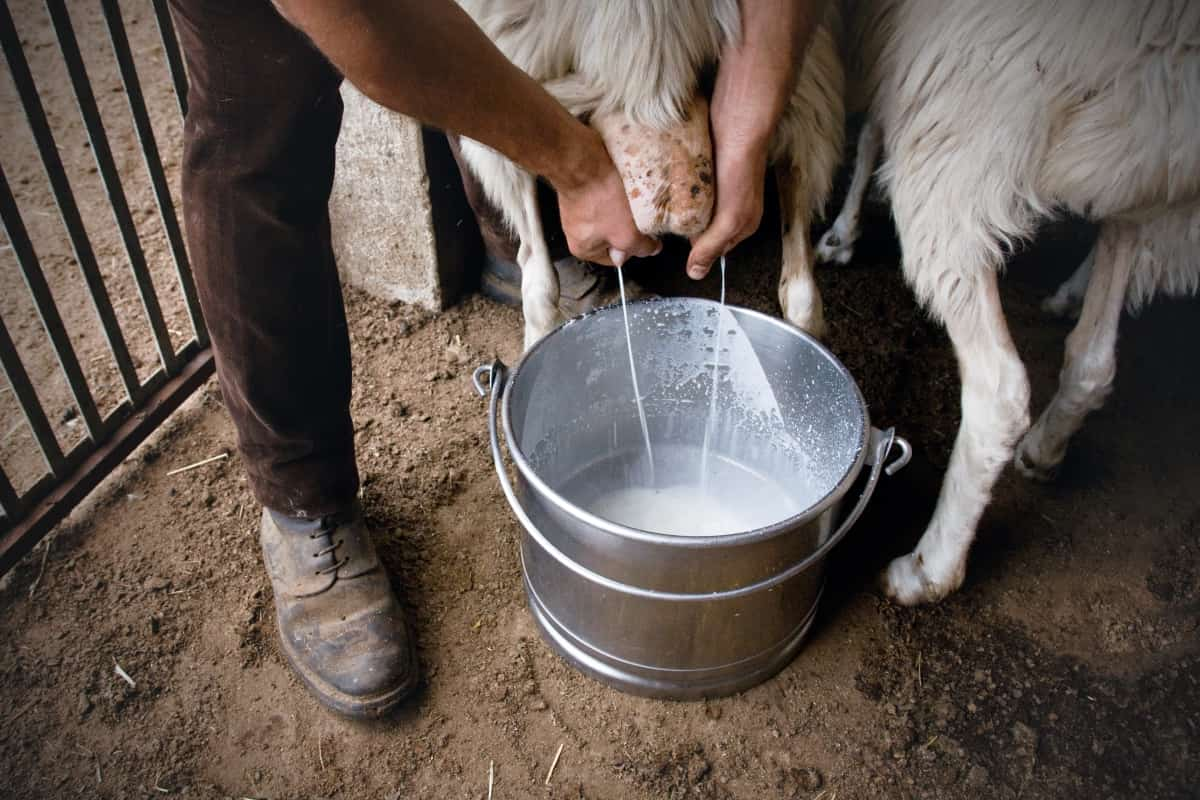Goat milk is known for its nutritional value and health benefits. It’s packed with many vitamins and minerals that can contribute to overall well-being, making it a lucrative product in today’s health-conscious market. The goat milk business allows you to diversify your income streams and tap into a growing market for healthy and natural products.

Market Analysis and Target Audience
Understanding the demand for goat milk products in the target market will help you tailor offerings to meet consumer needs. Identifying your target audience is equally important. Whether it’s health-conscious individuals looking for an alternative to cow’s milk or skincare enthusiasts seeking natural ingredients, knowing who your potential customers are will guide your marketing strategies.
When defining your target audience, consider demographics, buying behaviors, and preferences. Market research tools like focus groups and competitor analysis can provide insights into consumer trends and preferences.
Business Planning and Strategy
Having a solid business plan is crucial when starting a goat milk business. It sets the roadmap for your venture’s success. Start by defining your goals and objectives. Research market trends and analyze the competition to identify gaps that you can fill. Develop a business plan that outlines how you will position your goat milk products in the market. Determine pricing strategies, distribution channels, and promotional tactics to reach your target audience effectively.
Breeding and Herd Management
Breeding starts with selecting the right breed for your specific goals and environment. Understanding genetics and breeding techniques can help you develop a strong, healthy herd that produces high-quality milk. Proper nutrition is key to ensuring your goats’ health and productivity.
In case you missed it: Black Bengal Goat Project Report – Plan

A good diet rich in minerals and proteins is essential for optimal milk production. Regular health check-ups are also important to prevent diseases and maintain your herd’s overall well-being. Managing breeding cycles efficiently can help you maximize milk production throughout the year. By carefully planning mating schedules and monitoring reproductive health, you can ensure a steady supply of fresh goat milk for your business.
Feeding and Nutrition
Providing your goats with a well-balanced diet is essential for their health and milk production. Make sure to offer them high-quality hay, grains, and freshwater daily. Contact a veterinarian or animal nutritionist to create a feeding plan tailored to your goats’ specific needs. To maintain optimal health, they may require additional supplements such as minerals or vitamins.
Goats are known for being picky eaters, so it’s essential to monitor their feed intake regularly and avoid sudden changes in their diet, which can lead to digestive problems and decreased milk production. Incorporating pasture grazing into their routine can also benefit their health and the quality of their milk. Make sure that the pasture is free from toxic plants and pesticides.
Milking Techniques and Hygiene
When it comes to milking your goats, cleanliness is key. Wash your hands thoroughly before and after each milking session to prevent contamination. Invest in proper milking equipment, such as stainless-steel buckets and teat dip cups. This will help maintain the quality of your milk while minimizing the risk of bacterial growth.
Establish a routine for milking to ensure consistency and efficiency. Goats thrive on routine, so sticking to a set schedule will also benefit their overall health and productivity. Maintaining good hygiene practices in your milking area is essential for producing high-quality milk that meets safety standards.
Product Diversification
Expanding your product line beyond plain milk opens up new avenues for customer engagement. Consider adding value-added products like goat cheese, yogurt, or even soaps and lotions made from goat milk. These unique offerings can attract a wider range of customers and increase brand loyalty.
To stand out in the market, experiment with different flavors, packaging options, or specialty products. Get creative with your recipes and explore innovative ways to showcase goat milk’s versatility in various products. Product diversification keeps things interesting for your customers and also helps you stay competitive in the ever-evolving dairy industry.
Branding and Marketing
Your business brand should reflect the quality and uniqueness of your products. Marketing strategies play a major role in reaching potential customers. Use social media platforms to showcase your business products, share testimonials from customers, and engage with followers. Collaborating with influencers or bloggers in the health and wellness business niche can also help increase visibility.
In case you missed it: Earn Money from Goat Farming Business

Investing in professional packaging design can enhance your products’ visual appeal on store shelves or online platforms. Consider offering sample packs or special promotions to attract new buyers. Remember, effective branding and marketing are essential for growing your goat milk business successfully.
Distribution Channels
The most common method is selling directly to consumers through farmers’ markets, online platforms, or on-farm stores. This allows you to make a direct relationship with your customers and receivefeedback on your products. Another avenue to explore is partnering with local grocery stores, specialty shops, cafes, or restaurants that align with your brand values.
You could also consider distributing your goat milk products through wholesalers or distributors who can help get your products onto retail shelves across different regions. This can be a great way to scale up and reach more customers beyond your local area. Additionally, if there is demand for goat milk products in international markets, you may want to consider exporting opportunities. Partnering with export companies or attending trade shows can open up doors for global distribution channels.
Compliance and Quality Assurance
Running a successful goat milk business requires strict compliance with regulations and high-quality standards to ensure customer safety and satisfaction. Compliance involves meeting legal requirements related to food production, labeling, and animal welfare. Staying updated on industry regulations is crucial to avoid penalties or setbacks. Quality assurance focuses on maintaining the purity and freshness of your goat milk products through proper handling, storage, and processing techniques. Implementing quality control measures can help build trust with consumers.
In case you missed it: Earn Money from Sheep Farming in India

Financial Management and Sustainability
Keep detailed records of all costs associated with breeding, feeding, milking, and product diversification. This will help you analyze where money is being spent and identify areas for potential savings or investment. Creating and sticking to a solid budget can ensure your business’s long-term sustainability. Investing in sustainable practices benefits the environment and saves money in the long term.
Implementing energy-efficient systems, reducing waste, and optimizing resources can lead to cost savings while enhancing your operation’s overall sustainability. Starting a goat milk business can be a lucrative venture with the right planning, resources, and dedication. By following these guidelines in every aspect of your goat milk business, you can build a successful and profitable enterprise in the thriving dairy industry.
- Handicraft Making at Home: A Small Profitable Business Idea
- Pet-Tech Startups: Innovations for Animal Lovers
- Tech Repair Services: Meeting the Demand for Gadget Maintenance
- Maximizing Rewards: Smart Credit Card Habits for Cashback and Points
- Ultimate Guide to Making Money from Goat Milk Business
- How to Start an Agricultural Value Added Product Business
- Value-Added Business Ideas for Greenhouse: The Best Ways to Make Profits with Greenhouse Farming
- How to Make Profits with Organic Country Chicken: Best Strategies for Beginners
- 10 Value-added Business Ideas for Millets: Low-investment and Highly Profitable